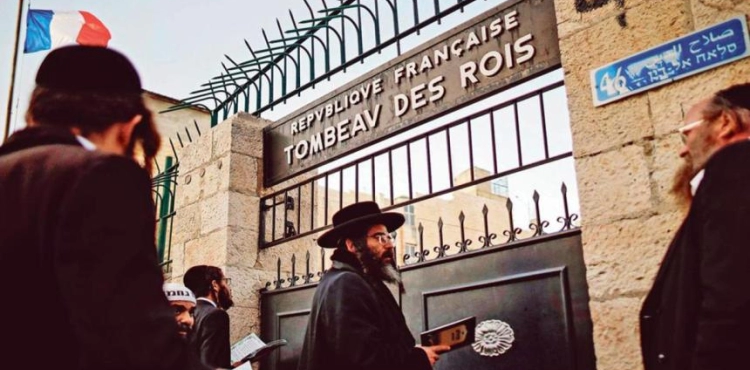France on Thursday reopened the site of an ancient cemetery in occupied East Jerusalem that has archaeological and religious significance after a suspension of visits following tensions in the archaeological site last summer.
The historic site in June was strained as hardline Jews tried to force their way into prayer without having received a card or secured the necessary reservations.
The site, known as the Sultans´ Tombs, can be visited at certain times twice a week.
According to the French consulate, access to the site is required to make an advance reservation online and pay a fee of 10 shekels ($ 3, 2.5 euros).
As the gates opened on Thursday morning, about 30 people - the maximum allowed because of the sensitivity of the site - visited the site, most of them ultra-Orthodox Jews who wanted to pray inside.
A dozen others danced and prayed outside the gates as they waited for their turn to enter and visit the grave with a policeman at the gate.
Jews consider the cemetery a religious site to bury their ancestors and demand the right to pray there.
The Roman archaeological site dates back 2,000 years, and the cost of restoration work was about one million euros ($ 1.1 million).
The site consists of a narrow rocky staircase leading to underground chambers of stone tombs followed by catacombs leading to other stone graves.
The site covers an area of ​​250 square meters.
Yehuda Tursky, 20, who studies religion in Jerusalem, said it was a "special event". "We are going to pray. The negotiations may succeed in opening the site to the public more often," said the ultra-Orthodox Jew from New York.
France reopened the site to visitors in June after its closure in 2010 due to renovations. It also faced attempts to challenge ownership of the site, which hampered its reopening.
The site was shut down immediately after a group of more than a dozen Orthodox militants tried to enter and pray, although they did not commit to online registration.
Archaeological sites in occupied East Jerusalem are often the subject of controversy associated with the Israeli-Palestinian conflict.
Israel occupied East Jerusalem in 1967 and later annexed it in a move not recognized by the international community.
Religious Jews previously went to the Rabbinical Court in Israel, which rules on matters relating to Jewish law and holy sites, to access this site, which is owned by France.
Before reopening the site, France sought guarantees that would avoid legal challenges. Commitments were also requested on how to manage the visits.












